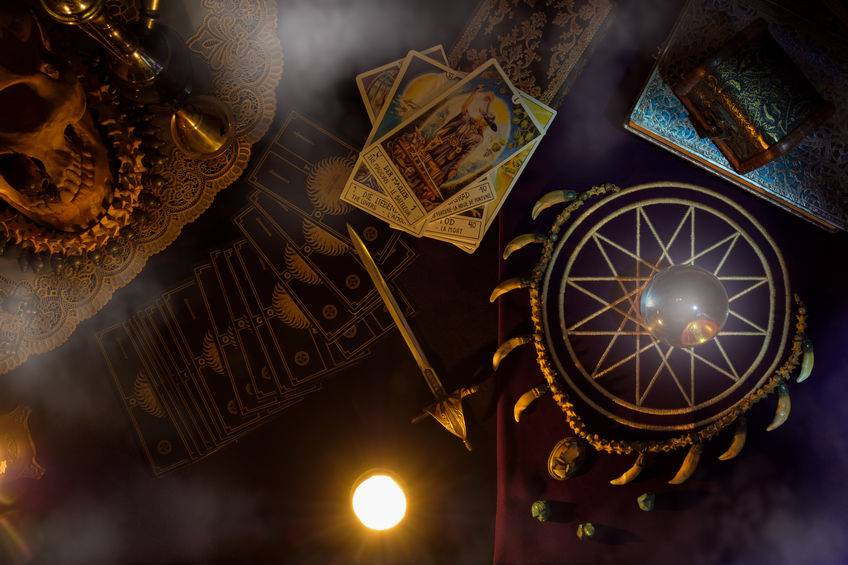The dictionary defines the word “Witchcraft” as: Communication and Conjuring of a devil or familiar; the use of magic or sorcery, a label for any discontent one may have with someone’s actions, and Wicca.
Wiccans and Witches who practice “The Craft”, understand that these definitions lack depth, and are much more detailed and complicated than this.
Witchcraft by definition, changes, sometimes drastically, depending on culture, what religion you ask, and what time period in history you ask it.
In the middle ages, European Historians would say that Witchcraft, is the ability to use thought alone to cause change or harm through rituals and incantations.
The truth is, Witchcraft can be used to both harm or to heal. But historical accounts would say that Witchcraft was only used to harm, this was mostly thought due to the ignorance of those who didn’t understand it. Nor did they want to.
The Historical Definition of Witchcraft
Both the Islamic and Christian Churches in the Middle Ages associated Witchcraft with the worshiping and conjuring of Satan, or any other demon, for use against the faithful. Thought to have made a pact with the Devil, these witches now had demons, known as familiars, that would aid them in creating chaos. This mindset was the fuel for the fires of the “Burning Times”; the Witch Hunts.
It is believed by some historians that anywhere from 90 thousand to 9 million people marked as Witches were killed. This took place in Early Modern Europe and Colonial North America, in the Early Modern period, approximately 1450 to 1750.
The Modern Definition of Witchcraft
Those witches that use their knowledge and skills of the art for healing and manipulating reality into positive and even negative work, were said to be “Crafty”. Thus, a Crafty Witch’s practice was referred to as “WitchCraft”. In years to come, the Art of WitchCraft was shortened by the Witches to simply “The Craft”.
“Witchcraft” is a modern ‘catch-all-phrase’ to any practice of manifestation that is outside of the monotheistic methodologies of prayer. Witches, Wiccans, and many other Pagans practice the traditional forms of “the Craft”, but combine their Magickal work with spiritual practices as well. These ways are also found in modern shamanism, alchemy, and sorcery.
Misconceptions and Differences in the meaning of Witchcraft
Witchcraft is not supernatural if you were to ask a witch; but rather just a means of harnessing the awesome powers of nature and manipulating them to do the asker’s desires, through spells, rituals, and incantations.
Today’s Wiccans, which are nothing more than a rebirth of the traditional craft, have set rules to govern the practices of covens and solitaires; forbidding them to do anything that is against the free will of anyone involved in the spell work, or to do harm to any living thing. Also, these rules, the Wiccan Rede, says that whatever energy you send out, be it good or not, will return to you threefold.
There are many practitioners of witchcraft that say: “Letting a wrong go unpunished is a crime in itself”; “If you can not curse, then you can not cure”; and “If you can not hex, you can not heal”; also “There is no such thing as good and evil, only energy”. Being good or evil is the thought, word or deed of the person. So, when you hear someone ask a practitioner of the craft, “Are you a good witch, or a bad witch?” The answer should be, “Are you a good Christian, or a bad Christian?” Saying that a witch worships Satan, is like telling an Atheist that they believe in God.
There are those that say that the laws of nature, specifically ‘cause and effect’ or ‘karma’, can be circumvented with specific rituals and spells. But on the other hand, there are those that say the laws of nature are inescapable, and what you send out WILL come back to you, either in the future or perhaps in a subsequent lifetime.
So in the end, the one thread that seems to be a constant is: that everyone you ask that dabbles in the art of Witchcraft will have a different description and definition as to what the word, label, or title means, even what the laws or rules are that govern witchcraft.




